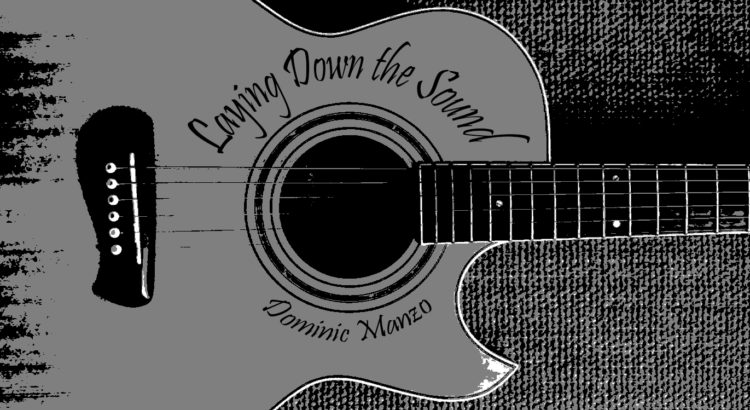Hello again everyone! In this week’s video I focus again on my song “Colored Balloon”; this is the second episode of the “Colored Balloon” series. More specifically, I go over the song’s organization and lyrics. The structuring of the song and the inspiration for the lyrics are here in focus. At the end of this video, I feature a full acoustic performance of “Colored Balloon,” which is meant to serve as a checkpoint along the way; it signals the completion of the songwriting process and the beginning of the recording process. Accordingly, then, my focus in the next video will focus on the latter. I did not intend for this video to be so long, but it is. Hopefully you enjoy and can take away something worthwhile from this video!
Tag: music
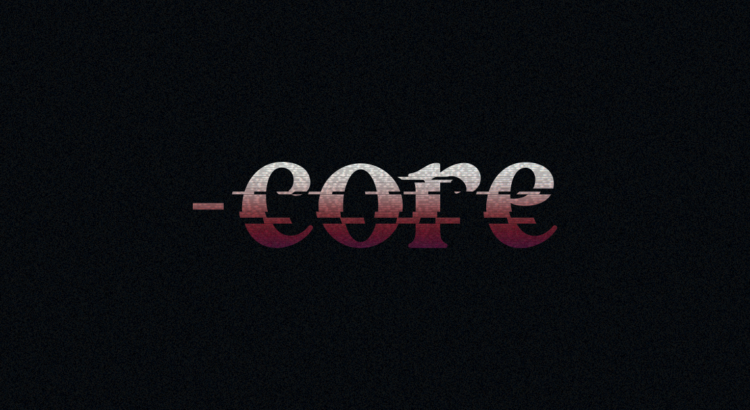
Album Review: Little Oblivions – Julien Baker
Little Oblivions
Matador (2021)
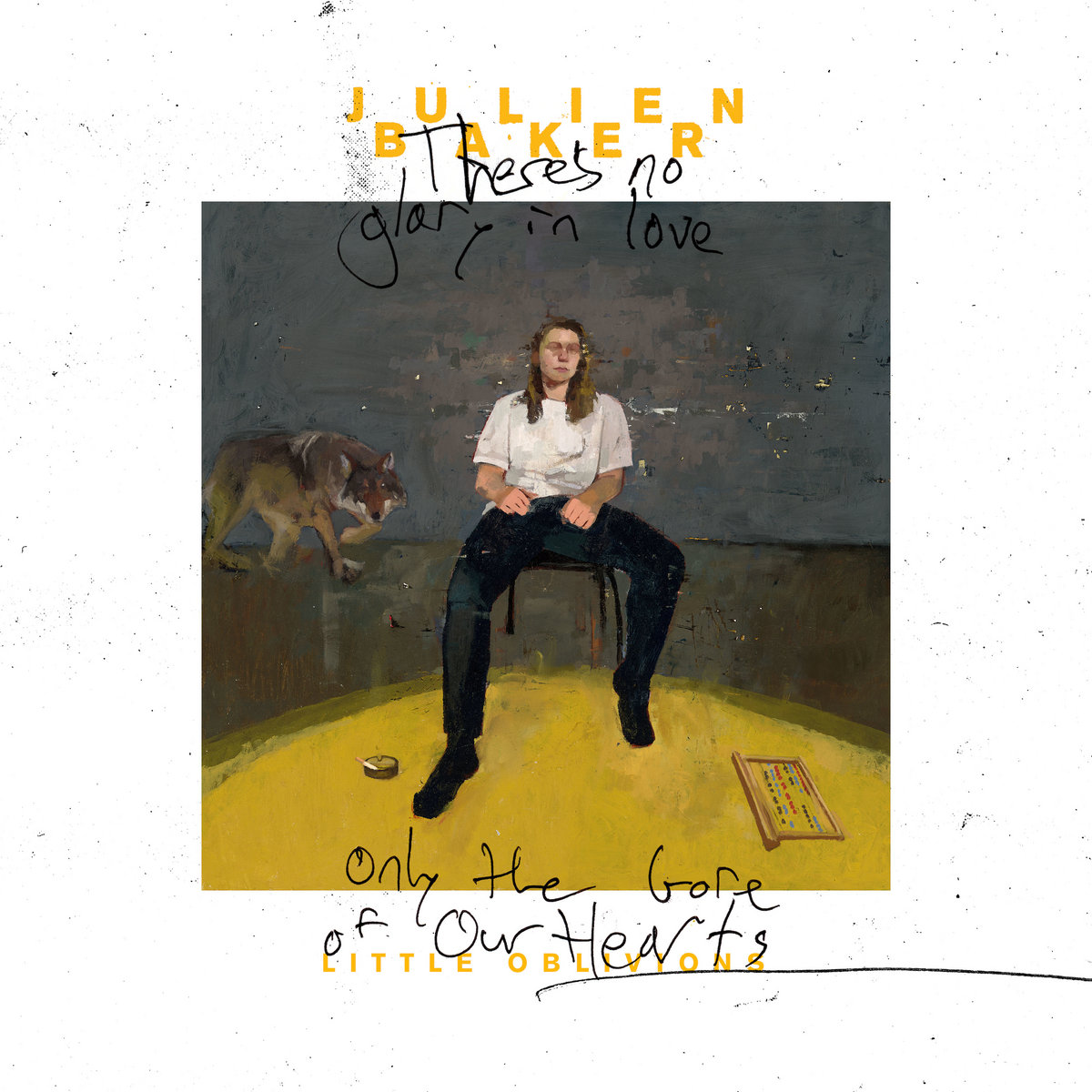 Julien Baker has always been somewhat of a paradox. She’s an openly queer woman who also happens to be Christian and from the South, specifically Tennessee. She writes simple, beautiful songs about complex topics like human nature and addiction. It seems to work for her, though, which is especially true on this new record, her third following two well-received albums and an EP with former tourmates Lucy Dacus and Phoebe Bridgers as the indie supergroup boygenius. I found her 2015 debut Sprained Ankle and 2017 follow-up Turn Out the Lights to be enjoyably raw, devastating listens, but I always wanted her to expand her sound from the simple guitar-and-vocals approach she’s known for.
Julien Baker has always been somewhat of a paradox. She’s an openly queer woman who also happens to be Christian and from the South, specifically Tennessee. She writes simple, beautiful songs about complex topics like human nature and addiction. It seems to work for her, though, which is especially true on this new record, her third following two well-received albums and an EP with former tourmates Lucy Dacus and Phoebe Bridgers as the indie supergroup boygenius. I found her 2015 debut Sprained Ankle and 2017 follow-up Turn Out the Lights to be enjoyably raw, devastating listens, but I always wanted her to expand her sound from the simple guitar-and-vocals approach she’s known for.
Little Oblivions serves as a full reinvention of Baker’s sound; it’s still her own, but presented in a much bolder, expansive package. This is largely due to Baker’s talents as a multi-instrumentalist: in addition to producing it, she plays nearly every instrument on the album, including guitar, bass, drums, piano, mandolin, banjo, and more. Simply put, it sounds massive, as if all the emotions contained in her lyrics have finally found an equivalent in the music itself. This evolution is immediately clear on the opener, “Hardline”, which, frankly, is one of the best songs she’s ever written. I’d even say it’s an early contender for song of the year. The song opens with harsh, blaring organ chords, an unexpected move that works incredibly well. Like much of Baker’s work, the song is an emotional powerhouse, but this one truly feels like it, using atmosphere and dynamics in a way her other tracks just didn’t explore. The drums are hard-hitting, the synths and guitars are bittersweet and heavy, and Baker’s vocals are better than ever. The lyrics are even more devastating than usual; one line I keep coming back to for its bluntness is when she asks, “Would you hit me this hard if I were a boy?”. It’s as good of an intro one could ask for.
From this point on, the album is consistently dense and troubled. It sticks fairly closely to the lush indie rock sound presented on the aforementioned opener, but that isn’t necessarily a bad thing, because for Baker, it’s all pretty new territory. Early album highlight “Relative Fiction” is about as groovy as a Julien Baker song could sound, all tight drums and light melodies, though it still holds onto her trademark introspection and self-deprecation in the lyrics. A bit later, Bridgers and Dacus lend their vocals to “Favor”, though it doesn’t exactly sound like a boygenius song. It’s actually a hazy, intoxicating ballad depicting the inherent drama and self-disparagement that comes when admitting guilt: “If I didn’t have a mean bone in my body, I’d find some other way to cause you pain / I won’t bother telling you I’m sorry for something that I’m gonna do again”. Other personal favorites include the driving lead single “Faith Healer”, as well as sparse piano ballad “Song in E”, which provides a much-needed moment of calm on the album.
However, as much as I like it, I don’t think this album is without its flaws. The main issue I have with it is I find the mix to be a bit smothering at times in its densely layered style. I think the record would benefit from giving all the different sounds some space and thus allowing it to have a vast, open sound. That isn’t to say I think it sounds bad or is poorly produced; it’s a gorgeous listening experience, albeit a bit disorienting. On a similar note, I would have liked there to be a greater focus on balance in terms of song intensity. There aren’t many songs that allow the listener to just breathe for a second, which perhaps is intentional given the emotional content of the record. When listening to the album in preparation for this review, I found myself repeatedly coming back to those little moments of simplicity on the album: the acoustic arpeggios in the midsection of “Highlight Reel”, the buildup of muted guitar and hushed vocals on “Heatwave”, all of “Song in E”. While I think Baker can definitely pull off the full-band sound, I admittedly miss the intimate nature of her earlier work. The bigger sound can take away from the raw power and beauty of her vocals and writing, though it is clear from the lyrics that she is no less vulnerable in her music.
All in all, Little Oblivions is a great record from a great artist. It’s a huge artistic leap, and although I’d argue she hasn’t completely mastered the larger sound, I believe it’s definitely something she can and will master on future releases. The writing is better on some songs than others, but it’s incredibly solid as a whole. It has a cohesive, enveloping sound throughout, like a night spent lying in bed, dissociating in the dark. Her ability to write such vulnerable, ruminative lyrics is a testament not only to her musicianship, but her devotion to near-constant self-examination and betterment as well. I honestly could have written a whole other post on her lyrics, and perhaps I will in the future. Most importantly, while I still love the uneasy nature of her previous work, she sounds confident as ever on this album, which I cannot help but admire. Everything here, from the lyrics to the melodies to the instrumental presentation, cements Julien Baker’s status as one of the most honest, brilliant songwriters out there today. It’s truly life-affirming stuff, and I highly recommend it.
~~~
Side note: I’ll be posting a chart of the albums I’ve been listening to at the end of each month on here. Here’s what I listened to in February! What have you been listening to?

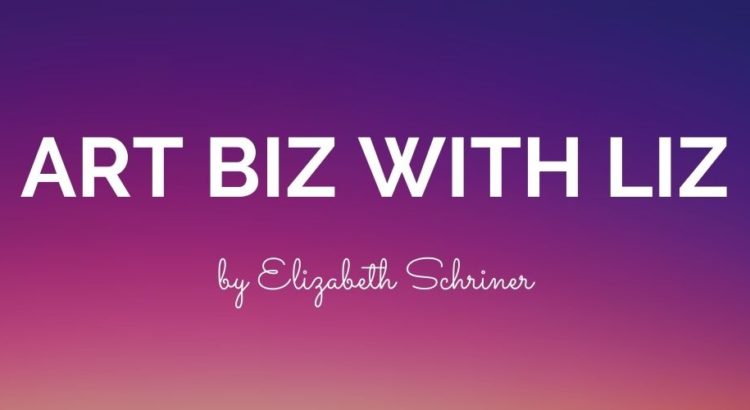
Art Biz with Liz: Pride and Prejudice Soundtrack
While my “Wellness Wednesday” this past week focused more on schoolwork than wellness, there are certain things that I treated myself to during the day off. One such activity was listening to music from the 2005 version of Pride and Prejudice starring Keira Knightley and Matthew Macfadyen. If you aren’t familiar with Pride and Prejudice, the film is based off of Jane Austen’s 1813 novel of the same name, which features five sisters from an English family (namely Elizabeth Bennett) as they navigate issues of marriage and morality. Instead of the storyline, however, today I’ll be talking about the movie’s soundtrack.
There are a variety of reasons as to why I love the Pride & Prejudice (Music from the Motion Picture) soundtrack. For one, I have fond memories of it. When I was in high school, I learned how to play two songs featured in the movie: “Leaving Netherfield” and “Liz on Top of the World.” I should clarify that by “play,” I mean play on the piano, and by “learned,” I had to master (or at least, become proficient in) the songs for an end-of-the-year piano recital. I didn’t mind, however, due to how pretty the songs were. “Liz on Top of the World” has a special place in my heart, not just because of the name, but for how beautiful it is. In my opinion, both of these tracks, along with basically every song in this soundtrack, are to be treasured – and you don’t need to have a personal connection to the soundtrack to enjoy them.
Movie soundtracks can do wonders in enhancing a movie scene or storyline. The Pride and Prejudice soundtrack has many moments where it does just that. It excels in its use of subtle songs in the periphery of crucial scenes, but it also drops the music front and center, making it as important as the dialogue or even the plot itself. “Meryton Townhall” and “Another Dance,” for instance, help transport viewers into the late eighteenth century during ball scenes. The soundtrack enhances the film by going hand-in-hand with its tone and story, intensifying pivotal scenes and providing insight on character growth. “Liz on Top of the World,” for example, begins while a silhouette of the sky is shown through Elizabeth’s closed eyelids, setting a mood. The music crescendos and manifests into an image of Elizabeth standing on a cliff, culminating into a breathtakingly beautiful and powerful scene.
Outside of the film, the soundtrack gives me all the emotions I feel while watching the movie. It’s also worthy enough to be art on its own accord, and if you haven’t caught on by now, I highly recommend that you give it a listen. Don’t believe me? Composer Dario Marianelli received an Oscar nomination for Best Achievement in Music Written for Motion Pictures, Original Score and two World Soundtrack Academy nominations. Clearly, I’m not the only one who believes that the soundtrack deserves praise.
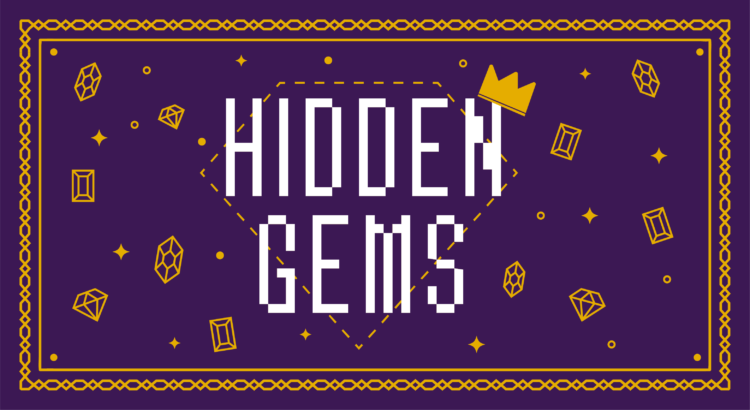
Hidden Gems: Man Alive! by King Krule
Michigan winters are the roughest time of the year for me; the lack of sunlight, the cold that bites to the bone, and now recently being stuck inside due to the pandemic. I get as much fresh air as I can, but as a solitary person who spends too much time on the computer, I find myself hardly leaving my apartment unless I have to. One of the things I miss most about the usual college experience is walking to class, even when it’s freezing cold, because it’s one of the only times where I’m not working and I can just live in the moment by enjoying the sights and listening to great music. I’ve discussed in the past how closely music can be related to certain times in life, and I find that’s especially true with the passing of the seasons. For me, winter is a time of melancholy music, albums that reflect the bleakness of winter days and the never-ending nights, songs that are dismal and depressing, and music that perfectly expresses the cold solitude of the season. Whether or not it’s good for my mental health, I just love how well certain music can complement the season, and I bask in the utterly dismal emotions that the pairing brings.
 On that happy note, let me introduce you to my current winter favorite, the musical artist King Krule. I don’t know much about him as a person, as he’s pretty mysterious and relatively unknown, but I know that his music is incredible. I discovered his work last winter, almost exactly a year ago to the day, and it resonated perfectly with what I was feeling at the time. The first album I listened to was Man Alive! which was released on February 21st of 2020 and was welcomed with critical acclaim by the music community. It was a unique experience for me; I hadn’t heard anything like it before, and the slow, dark, and heavy tone of the album was a complete surprise. Every note of every song is hauntingly beautiful and perfectly placed. The vocals are understated and delivered with such melancholy that it’s almost seductive. It’s a kind of depressing that’s relaxing in a way, because it’s so calm and simple in it’s sadness. All of the songs blend together into one long experience of self-reflection and the lack of distinct separation creates the feeling of falling down a dark well and never hitting the bottom. The album is a rabbit hole of abstract despair, with nothing solid to grasp, just fragments of coherent thought strung together with flawless instrumentation. It’s somewhat comparable to Pink Floyd’s The Wall at times, with dismal chord progressions and lyrics that portray a character going mad in solitude. For all of these reasons, I found Man Alive! to be the perfect album for winter, and even as I write this post I’m soaking in the relaxing despair of the album. I can’t recommend it enough, especially during the strange times we’re currently living in. King Krule will single-handedly define the last two winters for me, and I wouldn’t have it any other way.
On that happy note, let me introduce you to my current winter favorite, the musical artist King Krule. I don’t know much about him as a person, as he’s pretty mysterious and relatively unknown, but I know that his music is incredible. I discovered his work last winter, almost exactly a year ago to the day, and it resonated perfectly with what I was feeling at the time. The first album I listened to was Man Alive! which was released on February 21st of 2020 and was welcomed with critical acclaim by the music community. It was a unique experience for me; I hadn’t heard anything like it before, and the slow, dark, and heavy tone of the album was a complete surprise. Every note of every song is hauntingly beautiful and perfectly placed. The vocals are understated and delivered with such melancholy that it’s almost seductive. It’s a kind of depressing that’s relaxing in a way, because it’s so calm and simple in it’s sadness. All of the songs blend together into one long experience of self-reflection and the lack of distinct separation creates the feeling of falling down a dark well and never hitting the bottom. The album is a rabbit hole of abstract despair, with nothing solid to grasp, just fragments of coherent thought strung together with flawless instrumentation. It’s somewhat comparable to Pink Floyd’s The Wall at times, with dismal chord progressions and lyrics that portray a character going mad in solitude. For all of these reasons, I found Man Alive! to be the perfect album for winter, and even as I write this post I’m soaking in the relaxing despair of the album. I can’t recommend it enough, especially during the strange times we’re currently living in. King Krule will single-handedly define the last two winters for me, and I wouldn’t have it any other way.
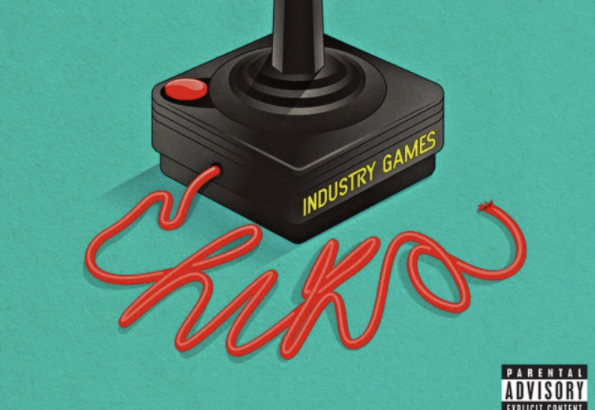
“Milelong Mixtapes”: Ep. #4
“Mile-Long Mixtapes”: Ep. #4
Happy Birthday CHIKA’s “Industry Games” & Also… the Pandemic?
by Kellie M. Beck
The Friday after the University shut down classes for the remainder of the Winter 2020 semester, recently acclaimed rapper CHIKA released her debut album. My roommate and I listen to this album relentlessly– no one skips CHIKA in my house.
Her Industry Games EP is a pure, ultra-concentrated dose of her finest work yet. “Intro”, the minute-long prologue to the piece, introduces soaring piano and string sections, and tells listeners “I hope this music makes you think,” only after a tight and dense verse with near-Grecian level drama. But the sentimentality is quickly tossed aside for the EP’s titular track to take center stage.
CHIKA reveals to her audience over the course of the EP her struggle with her recent flux of fame. In “Industry Games”, CHIKA identifies herself as the literal “antithesis” of the rap industry, claiming that other top rappers aren’t invested in their work the way she is.The song segways neatly into “Songs About You”, a four-minute legacy track– arguably her finest song on the EP. “Songs About You” turns to criticizing haters, and both says and shows that CHIKA is hitting her prime, and on the way to becoming a household name. Even though CHIKA does her fair share of bragging about her (rather evident) skills, an underlying current of dissatisfaction runs through her lyrics– it begs the question, “if I’m already miles ahead of everyone else, what’s next?”
Over an angelic chorus of her backup singers singing “talk”, CHIKA rips the Band-Aid off in her track, “Balencies”. What’s the point of all this success, if the money and fame don’t bring me anything other than more problems? A church organ drops at the end of the second verse, the overwhelming pressure of the audio weighing down on the listener, only for it to drop into the sugary sweet intro of “Designer”. What’s the point of all this success, if she has to enjoy it alone? “On My Own” attempts to address the balance between love, and a relationship, with her fame with soft, velvety vocals, and her repeated promise: “I’m on my way.”
It’s CHIKA’s finale track, “Crown”, that contextualizes the album for me. CHIKA opens her story up to her audience, and asks them to connect with her story and her strife– “chasing the impossible takes some courage”, she tells listeners. Gospel vocals and rich layers of harmonizing vocals sing in pure joy– CHIKA chooses to celebrate strife as something that defines us. To survive, is to thrive.
The pandemic is almost a year old. But on the horizon, is a promise of its end, while the sun begins to shine and the earth begins to thaw in Ann Arbor, Michigan. Listening to CHIKA’s Industry Games, I think we might owe ourselves a celebration of epic proportions someday soon.
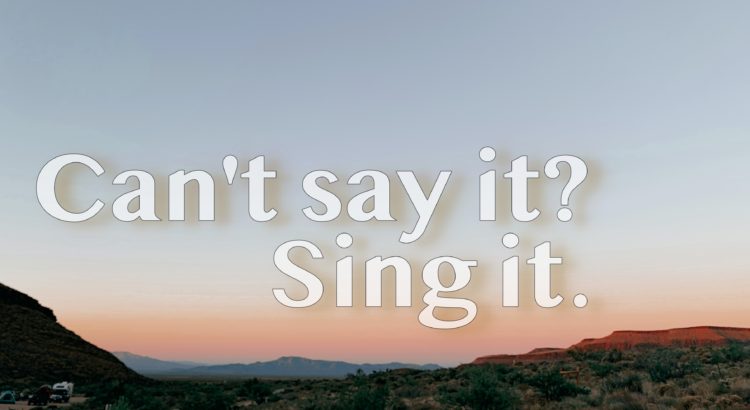
Do songs have to rhyme?
One thing I think I’ve grown at during my songwriting career is my appreciation for the different forms lyrics can take. Lyrics are in many ways just poems set to music, and when most people think of poems, they think of structures ending in rhyming parts. These parts are pleasing to the ears, but are not required to write a successful poem–or in that case, a successful song.
When I wrote my first song I was eight years old. It was called “Sun is Shining,” and was pretty much what you would expect an 8-year-old to write. It went:
“Sun is shining,
trees are swaying
wind is blowing
flowers waving”
etc. I was so proud of myself for the way the lines sounded when sung together since they all ended in the ‘ing’ format. To 8-year-old me, lyrics could be written in one way, and one way only.
As I grew up, my lyrics got a little more complicated than talking about what I could see in the prairie outside my living room window. In middle school I wrote “Juliet in Me,” a song which my mother swears will never be replaced as her favorite piece of mine.
It began:
“Sitting in the darkness
in a princess dress
I felt like a girl people would fight for
but how am I supposed to act my part
when the only love I’m in is through Juliet’s heart
and my Romeo doesn’t even know my name”
Based on my musical theatre endeavors, this song was a venture into the world of lyrics where not EVERY line had to rhyme. I also employed rhymes/similar sounds within single lines of text for the first time: I.e. RomeO doesn’t even KNOW my name.
In college I got into the groove of using near rhymes–words that weren’t identical in their patterns, but exhibited the same vowel sounds and therefore sounded like they did rhyme when sung. One of the latest songs I wrote uses this technique in its chorus:
“I am a kid again
chasing fairytales and booking flights to places I’ve never been
Because life Isn’t long and we don’t know when it will end
and sometimes you can’t wait around for your prince to step in
oh I am a kid again”
Every word at the end of a line in this chorus is a near rhyme. AgAIN, bEEN, ENd, IN, and agAIN. If you spoke this chorus aloud, odds are you would catch the discrepancies in sound, but when sung over a background of musical instruments, it’s less obvious. This is due to the fact that vocalists tend to linger on vowels instead of consonants while singing, Since the vowel sounds in all of these words are very similar, as the vocalist lingers on them, the vowel becomes the most important part of each of these words and the rhyme scheme works.
This is the same technique I use in the song I am currently writing. It is a duet–featuring a male voice speak/singing a part over the bridge. Part of his lyrics go:
“I thought I saw you last night
Across the bar with some other guy
True, you were never mine
But when he held you tight
I said “I’m fine”; I lied
Can’t you see I’m crying”
This goes even one step further than the song about being a kid again. Not only does it use the same vowel sound at the end of every line, but it also sneaks it into the middle of lines here and there. In this case the sound I was looking for was the long “I” sound.
“I thought I saw you last night
Across the bar with some other guy
True, you were never mine
But when he held you tight
I said “I’m fine”; I lied
Can’t you see I’m crying”
So, do songs HAVE to rhyme? No, of course they don’t. Is rhyme a good tool to use to make your lyrics easy to remember? For sure! However, there’s no ONE way to use rhyme. You can go the simple way with perfect rhymes, or dive into something a little more complex. To each their own!

